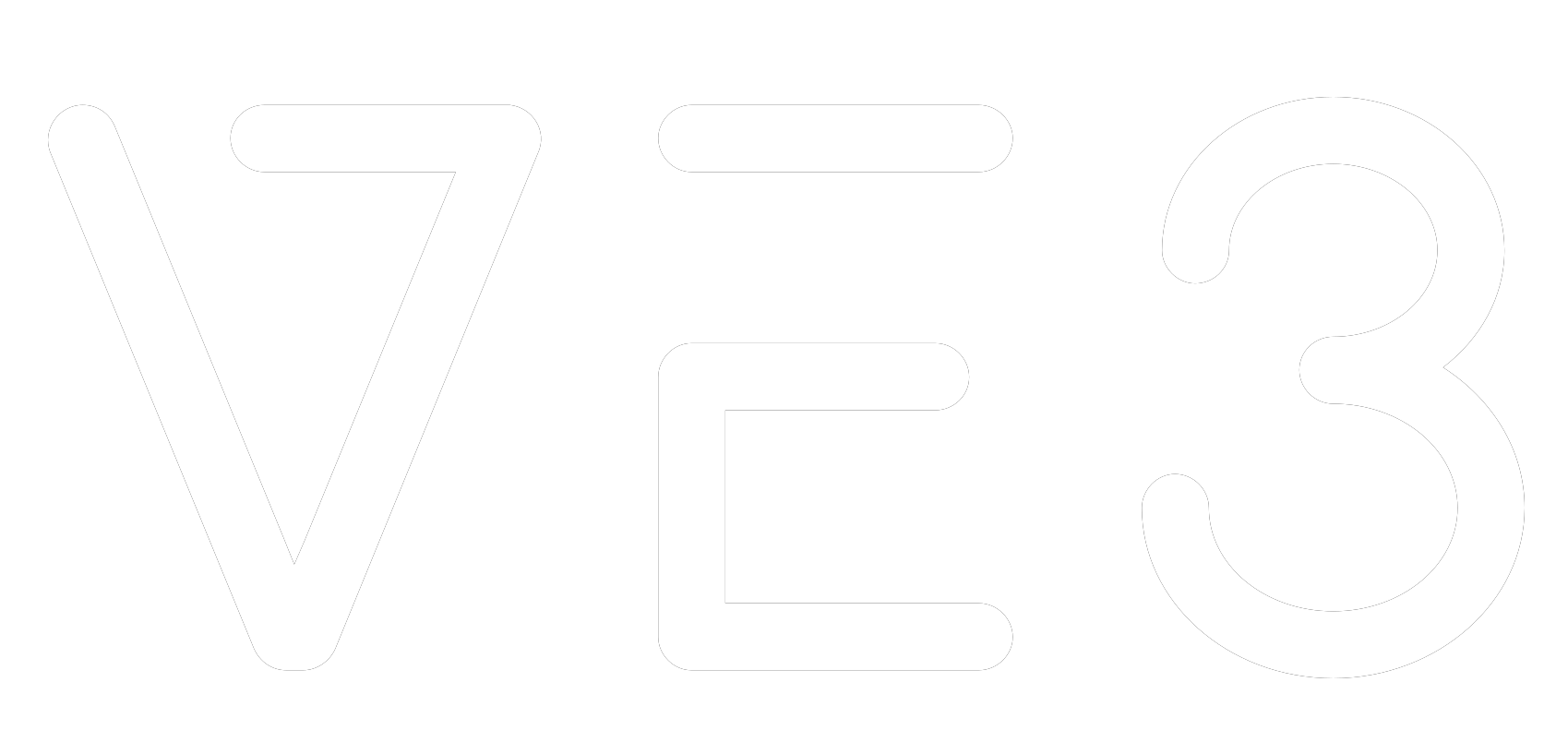The last decade has seen an explosion in the technology landscape and innovation. From crypto, metaverse, and web3 to generative AI‘s ongoing disruption and innovations, the boost in digital capabilities has rapidly reshaped the industries and workflow. Among the chaos of digital revolutions, the one that has been shaking industries for quite some time is quantum computing. The upcoming digital transformation wave will give businesses the ability to derive actionable, and not just theoretical, value from quantum computing capabilities.
Imagine a computing paradigm where the laws of classical physics no longer apply, where bits can exist in multiple states simultaneously, and calculations are performed at speeds that seem impossible. Welcome to the quantum realm, where quantum computing is rewriting the rules of information processing. And now, with the advent of cloud computing, this extraordinary technology is becoming more accessible than ever before. Let’s take a fascinating glance into the world of quantum computing in the cloud, exploring its mind-bending principles, real-world applications, and the transformative potential it holds for our digital future.
How does quantum computing in the cloud work?
Quantum computing is a revolutionary field that leverages the principles of quantum mechanics to perform computations at an exponential speed compared to classical computing. Quantum mechanics principles underlie quantum computing, including superposition, entanglement, and quantum interference, which enable qubits to exist in multiple states simultaneously. Qubits are the fundamental building blocks of quantum information, analogous to classical bits, but with additional properties such as superposition and entanglement. Quantum gates and operations manipulate the quantum state of qubits to perform quantum computations. These gates include quantum versions of classical logic gates, such as the Hadamard gate, Pauli gates, and CNOT gate, among others.
While cloud computing provides on-demand access to computational resources and services over the internet, quantum computing in the cloud combines the power of quantum computing with the accessibility and scalability of cloud computing. This combination allows users to access quantum resources and run quantum algorithms without the need for specialized hardware. These operations enable the manipulation and transformation of quantum information during a computation.
Applications of Quantum Computing in the Cloud
By harnessing the power of quantum algorithms and resources, researchers and businesses can tackle complex problems and unlock new frontiers of knowledge. Let’s explore some of the key applications of quantum computing in the cloud.
Cryptography and Data Security:
One of the most used applications of quantuzm computing lies in the field of cryptography and data security. Quantum computers have the potential to break traditional cryptographic algorithms, such as RSA and ECC, which form the backbone of modern encryption. However, quantum computing also offers solutions to this challenge. In the cloud, quantum-resistant encryption algorithms can be developed and tested, ensuring data remains secure even in the face of quantum attacks. Quantum key distribution (QKD) protocols, which leverages the principles of quantum mechanics to secure communication channels, can also be explored in the cloud to enhance data privacy and security.
Optimization and Operations Research:
Quantum computing has tremendous potential to revolutionize optimization and operations research. Quantum algorithms, like Quantum Approximate Optimization Algorithm (QAOA) and the Quantum Annealing Algorithm, can solve complex optimization problems at an unprecedented speed. Cloud-based quantum computing platforms allow users to test and develop these algorithms, enabling businesses to optimize their operations and take informed decisions based on quantum-optimized solutions.
Quantum Machine Learning:
Quantum machine learning is an emerging field that combines the power of quantum computing with the principles of machine learning. In the cloud, researchers can explore quantum machine learning algorithms that leverage the unique properties of quantum systems, such as quantum parallelism and quantum entanglement, to enhance data analysis and pattern recognition tasks. QML algorithms have the potential to outperform classical machine learning algorithms in certain domains, enabling the discovery of new insights from complex datasets.
Drug Discovery and Material Science:
Quantum computing holds tremendous promise for drug discovery and material science. Quantum simulations can accurately model molecular interactions, which are essential for understanding chemical reactions, predicting the properties of materials, and designing new drugs. In the cloud, researchers can leverage the power of quantum computing to accelerate the simulation of complex molecules, significantly reducing the time and cost involved in drug discovery and material science research. This enables scientists to explore novel compounds, optimize drug candidates, and discover materials with tailored properties, paving the way for groundbreaking advancements in healthcare and material engineering.
Quantum Cloud Providers and Services
Several major cloud providers have recognized the potential of quantum computing and have invested in offering quantum resources to users. IBM Quantum, Microsoft Azure Quantum, Amazon Web Services (AWS) with their Amazon Braket service and Google Quantum Computing Service. Each provider offers a range of services and tools to facilitate quantum computing in the cloud.
Amazon Web Services (AWS) with Amazon Braket:
Amazon Web Services (AWS) provides quantum computing services through their Amazon Braket platform, some of their key services are:
- Access to Quantum Hardware: Amazon Braket allows users to run quantum circuits on a variety of quantum hardware platforms, including Rigetti, IonQ, and D-Wave, allowing users to access these hardware options through a unified interface provided by Amazon Braket.
- Quantum Simulators: Amazon Braket offers high-performance quantum simulators, allowing users to simulate quantum circuits and test quantum algorithms without the need for physical hardware. Simulators help users gain insights into the behaviour and performance of quantum systems.
- Integration with AWS Services: Amazon Braket is integrated with various other AWS services, enabling users to combine quantum computing with other cloud-based technologies, allowing users to leverage existing AWS capabilities, such as data storage, security, and machine learning, in conjunction with quantum computing.
Google Quantum Computing:
Google Quantum Computing, offers a range of services and resources for quantum computing, such as:
- Cirq: Google’s open-source quantum programming framework, Cirq, provides a platform for researchers and developers to create and test quantum algorithms, enabling the construction of circuits and allowing users to simulate quantum computations.
- Quantum Hardware: Google is actively developing its own quantum processors, known as quantum processing units (QPUs), to power their quantum computing service. Although access to Google’s quantum hardware is currently limited, they offer collaborations and partnerships to explore quantum algorithms on their systems.
- Quantum Software Development: Google Quantum Computing offers software development kits and tools for quantum algorithm development. Developers can utilize these resources to create and optimize quantum algorithms for a range of applications.
IBM Quantum:
IBM Quantum offers a comprehensive suite of services and tools to support quantum computing in the cloud, such as:
- IBM Quantum Experience: Provides users with access to quantum simulators and real quantum hardware, letting users run experiments, develop quantum algorithms, and explore the capabilities of IBM’s quantum processors.
- Qiskit: IBM’s open-source software development kit (SDK), Qiskit, allows users to program and execute quantum circuits on IBM Quantum systems. It provides a range of libraries & tools for quantum algorithm development and optimization.
- IBM Quantum Network: The IBM Quantum Network is a global community of researchers, developers, and industry partners collaborating on quantum research and development. Members of the network gain access to additional resources, expertise, and support from IBM.
Microsoft Azure Quantum:
Microsoft Azure Quantum offers a range of services and tools to facilitate quantum computing in the cloud, such as:
- Azure Quantum Workspace: It allows users to develop and execute quantum applications using various tools, including the Q# programming language and the Quantum Development Kit (QDK). It also provides a scalable and collaborative environment for quantum computing projects.
- Quantum Development Kit (QDK): The QDK is a set of tools, libraries, and simulators that enable developers to write and test quantum algorithms using the Q# programming language. It also includes simulators for local testing as well as the ability to submit jobs to quantum hardware.
- Partnerships: Microsoft Azure Quantum has established partnerships with leading quantum hardware providers to offer a diverse range of quantum computing options, allowing users to access a variety of quantum processors and simulators through the Azure Quantum platform.
Future of Quantum Computing in the Cloud
In the coming future, as advancements in hardware, algorithms, and software continue, quantum computing holds immense potential for advancements and breakthroughs and will impact various industries and sectors, driving innovation, enabling breakthroughs, and transforming the way we solve complex problems. By addressing the challenges and leveraging the opportunities, we can unlock the full power of quantum computing in the cloud and usher in a new era of technological advancements.
Trends and Advancements in Quantum Computing
As the field continues to evolve, several emerging trends are shaping the future of quantum computing:
- Increasing Qubit Counts: Quantum hardware is rapidly advancing, with efforts focused on increasing the number of qubits in quantum processors. As qubit counts increase, quantum computers will become more powerful, capable of solving larger and more complex problems.
- Error Correction and Noise Mitigation: Research in error correction techniques and noise mitigation is crucial for improving the reliability and stability of quantum computations. Advancements in error correction codes and error mitigation strategies will enable quantum computers to deliver more accurate and reliable results.
- Hybrid Quantum-Classical Architectures: Hybrid quantum-classical architectures combine the strengths of classical and quantum computing to solve complex problems efficiently. These architectures leverage classical computers to perform preprocessing and post-processing tasks while offloading computationally intensive tasks to quantum processors. This approach opens up new opportunities for solving problems that are beyond the reach of classical computing alone.
Impact on Various Industries and Sectors
Cloud Quantum computing holds the potential to revolutionize various industries and sectors:
- Fintech and Optimization: Quantum computing can optimize portfolio management, risk assessment, and financial modelling, leading to more informed investment decisions and enhanced risk management strategies.
- Healthcare and Drug Discovery: Quantum computing can accelerate drug discovery processes, simulate molecular interactions, and enable personalized medicine by analyzing vast amounts of genomic data.
- Logistics and Supply Chain Management: Quantum computing can optimize supply chain management, route planning, and inventory management, resulting in improved efficiency, reduced costs, and minimized environmental impact.
- Machine Learning (ML) and Artificial Intelligence (AI): Quantum computing enhances machine learning algorithms by processing vast amounts of data more efficiently, enabling faster pattern recognition and improving recommendation systems.
Advantages and Challenges
Quantum computing has traditionally been an exclusive domain limited to specialized research institutions and organizations with substantial resources. However, the advent of cloud computing has transformed the landscape by making quantum resources more accessible to a broader audience. Cloud-based quantum computing platforms provide users with on-demand access to quantum simulators and real quantum hardware, eliminating the need for significant upfront investments in infrastructure. Nevertheless, every revolutionizing technology has its share of benefits and drawbacks. Thus, let us delve into the merits and hurdles of cloud-based quantum computing and uncover the strategies employed by quantum computing providers to address them.
Merits:
- Accessibility: Cloud-based Quantum computing democratizes access to this cutting-edge technology. Previously, quantum computing was limited to specialized research institutions and organizations with significant resources. Cloud-based quantum computing platforms, such as AWS Quantum Computing, Google Quantum Computing, IBM Quantum Experience and Microsoft Azure Quantum, provides a user-friendly interface and infrastructure to experiment with quantum algorithms and run quantum simulations. This accessibility allows researchers, developers, and businesses to explore the potential of quantum computing without requiring substantial investments in hardware and infrastructure.
- Scalability: Cloud-based quantum computing offers scalability, allowing users to access quantum resources as per their requirements. Cloud providers can dynamically scale their quantum infrastructure to accommodate increased demand and advancements in quantum hardware. As quantum computers evolve and qubit counts increase, cloud users can leverage these advancements without needing to make significant upgrades to their own infrastructure.
- Flexibility and Experimentation: Cloud-based quantum computing provides a flexible environment for users to experiment with quantum algorithms and explore quantum principles. Cloud-based quantum simulators allow users to simulate quantum circuits and test algorithms without the need for physical quantum hardware. This flexibility enables rapid prototyping, algorithm development, and the exploration of new use cases, fostering innovation and discovery.
- Collaboration and Community: Cloud-based quantum computing platforms facilitate collaboration among researchers, developers, and enthusiasts, allowing users to share knowledge, exchange ideas, and collaborate on quantum projects. This collaborative environment helps to accelerate advancements in quantum computing, fostering a vibrant community that pushes the boundaries of the emerging technologies.
Challenges and how to deal with them:
- Quantum Noise and Errors: Quantum systems are prone to noise and errors due to factors such as decoherence, imperfect control operations, and environmental interactions. These errors can degrade the accuracy and reliability of quantum computations. Cloud providers and researchers are actively addressing this challenge by developing error correction techniques and implementing error mitigation strategies.
- Limited Qubit Availability: Quantum hardware is still in its early stages of development, and the number of qubits available in quantum processors is currently limited. This poses a challenge when running complex computations that require a larger number of qubits. While cloud providers strive to increase the qubit count in their quantum processors, users must carefully consider the limitations and adapt their algorithms accordingly.
- Algorithmic Development and Optimization: Quantum algorithms differ significantly from classical algorithms, requiring a paradigm shift in algorithmic development. Adapting existing algorithms or designing new ones for quantum systems can be a complex task. Additionally, optimizing quantum algorithms to leverage the full potential of quantum computing requires expertise and computational skills. Cloud-based quantum providers are doing continuous research, collaboration, and the development of tools and frameworks to simplify the process and overcom these challenges.
Ethical and Societal Implications of Quantum Computing:
Quantum computing, with its immense power and potential, brings forth a range of ethical and societal considerations. As this technology advances, it is crucial to examine the ethical implications, address potential risks, and ensure responsible and ethical use of quantum computing technology.
Ethical Considerations in Quantum Computing and its Applications:
- Privacy and Data Security: Quantum computing has the potential to break traditional cryptographic algorithms, raising concerns about data privacy and security. As quantum-resistant encryption algorithms are developed, it is important to ensure the protection of sensitive information and safeguard privacy rights.
- Fairness and Bias: As quantum machine learning algorithms evolve, it is vital to address issues of fairness, bias, and transparency. Efforts should be made to prevent the propagation of biases present in training data and ensure that quantum machine learning models are fair, transparent, and accountable.
- Intellectual Property and Patenting: Quantum computing advancements may lead to breakthroughs that could have significant intellectual property implications. Questions arise regarding patentability, ownership, and the sharing of quantum computing inventions. Developing fair and inclusive policies is crucial to promote innovation while safeguarding intellectual property rights.
- Ethical Frameworks and Regulations: Establishing ethical frameworks, guidelines, and regulations for the development, deployment, and use of quantum computing is essential. These frameworks should address issues such as privacy, fairness, accountability, and the responsible handling of sensitive data.
- International Collaboration: Global collaboration and coordination among governments, organizations, and researchers are crucial to address ethical and societal implications at an international level. Collaborative efforts can lead to the development of ethical standards, policies, and best practices that promote responsible use of quantum computing technology.
- Ethical Education and Public Awareness: Promoting public awareness and education about quantum computing and its ethical implications is vital. Encouraging open dialogue and public engagement can help foster a better understanding of the technology and its potential impact, empowering individuals to make informed decisions and shape ethical policies.
In conclusion,
In the coming years, we can expect quantum computing to continue evolving, bringing us closer to a new era of computing power. The age of cloud-based quantum computing has arrived, and its transformative potential is poised to revolutionize our digital future. By harnessing the power of this extraordinary technology, you can unlock new possibilities, solve complex problems, and usher in a new era of innovation. It is an exciting time to be at the forefront of this quantum revolution, where the rules of information processing are being rewritten, and the boundaries of what is possible are being pushed beyond imagination.
VE3 plays a pivotal role as a facilitator and enabler in the quantum computing ecosystem. We collaborate with businesses to unlock the immense potential of quantum computing, leveraging our strong partnerships with industry-leading providers such as Google, AWS, Azure, and IBM. VE3 ensures that businesses gain access to cutting-edge quantum computing resources, expertise, and infrastructure. By combining our deep understanding of quantum technologies with the robust infrastructure and services provided by these industry giants, VE3 delivers high-performance and scalable quantum computing solutions to businesses that require them.
Moreover, VE3’s expertise extends beyond mere technical integration. We work closely with businesses to thoroughly understand their specific needs and develop tailored quantum computing solutions that precisely align with their objectives. This collaborative approach ensures that businesses receive top-notch, optimized cloud-based quantum computing services that are specifically designed to meet their unique requirements and goals.


















